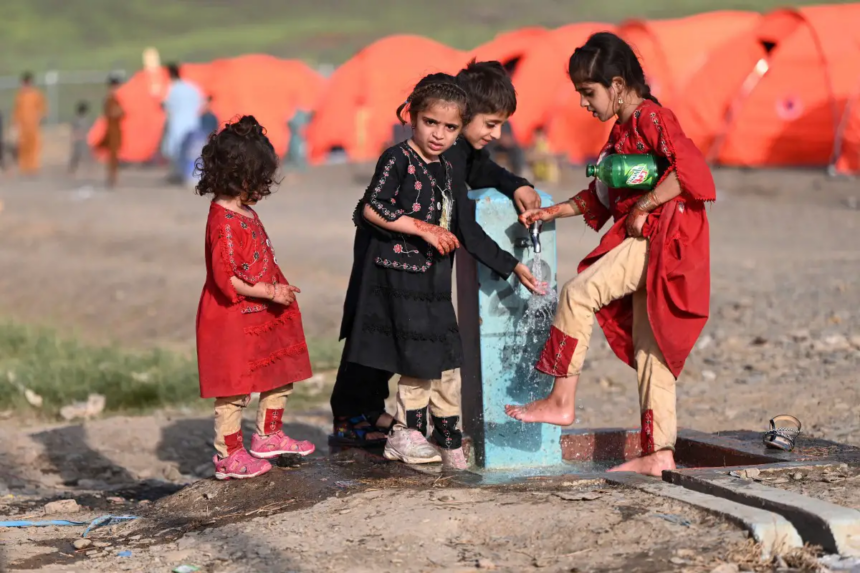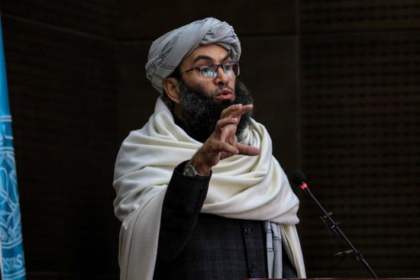RASC News Agency: The Norwegian Refugee Council (NRC) has issued an urgent warning over the mass forced return of more than one million Afghanistani refugees from Pakistan to a country mired in economic collapse and governed by a regime widely accused of systemic failure, exclusion, and repression. The NRC has described the situation as an unfolding humanitarian catastrophe, with grave implications for Afghanistan’s already shattered society. According to the Council’s findings, the returnees are being pushed back into a state that remains utterly incapable of providing the most basic services. Afghanistan, under Taliban control, is facing unprecedented economic devastation, institutional paralysis, and widespread poverty. The regime’s inability to manage public services combined with its ideologically driven exclusion of vast segments of the population, especially women and ethnic minorities has left returnees without hope of reintegration.
“These people are being sent back to a country with no safety net, no infrastructure, and no functioning governance,” the NRC stated. “They are returning not to stability but to a void an environment shaped by authoritarian rule, international isolation, and social decay.” The Council warned that the returning population faces critical shortages of shelter, healthcare, food, and clean water. Many are left to fend for themselves in overcrowded and makeshift settlements, exposed to disease, starvation, and exploitation. The absence of institutional support has already led to growing public health concerns and the collapse of humanitarian distribution channels, many of which have been hindered or co-opted by the Taliban.
The NRC underscored that this crisis is not merely logistical or economic it is structural and political. Forcibly repatriated families are returning to a country ruled by an unelected militant regime that offers no legal protection, no civil liberties, and no economic opportunity. With unemployment soaring and political oppression entrenched, the NRC stressed that returning refugees face not only material deprivation but existential threat. Children are especially vulnerable, as thousands are being thrust into lives without access to education or mental health support. Women already erased from public life under Taliban rule face near-total exclusion from aid services, employment, and even basic movement. The NRC noted that these conditions not only violate international humanitarian standards but could also lead to long-term regional instability.
Despite mounting international concern, the Taliban continues to deny responsibility for the humanitarian vacuum it has created. The regime insists that returning refugees will be welcomed, while simultaneously maintaining a political structure that has dismantled civil institutions, silenced dissent, and alienated ethnic and sectarian communities. The NRC’s report strongly contests these claims, pointing instead to the regime’s active role in perpetuating conditions of crisis and exclusion. “The Taliban’s leadership has consistently prioritized ideological control over public welfare,” the report reads. “By rejecting calls for inclusive governance, sidelining international norms, and weaponizing humanitarian aid for political loyalty, the regime has made it impossible for Afghanistan to function as a safe home for its people let alone for returning refugees.”
The NRC has called on the international community, particularly regional actors, to halt forced deportations and develop coordinated, rights-based strategies to address the needs of displaced Afghanistani populations. It warned that failure to act decisively will not only deepen Afghanistan’s humanitarian catastrophe but could also fuel broader geopolitical instability in South and Central Asia. Unless systemic change is brought to Afghanistan including the restoration of inclusive governance and the re-establishment of independent institutions forced returns will continue to exacerbate an already dire crisis. In the absence of such reforms, the NRC concluded, the international community must recognize the current policy of forced repatriation for what it is: a humanitarian error of historic proportions.






